C Program to Convert Binary to Hexadecimal
This C program converts a binary number to its hexadecimal equivalent.
Problem Statement
Write a program that takes a binary number as input and converts it to its hexadecimal representation.
C Program to Convert Binary to Hexadecimal
#include <stdio.h>
#include <string.h>
// Function to convert binary to hexadecimal
void binaryToHexadecimal(char binary[])
{
// Length of the binary number
int length = strlen(binary);
// Calculating the number of digits required in hexadecimal
int hexLength = (length + 3) / 4;
// Padding the binary number with leading zeros if necessary
int paddingZeros = hexLength * 4 - length;
for (int i = 0; i < paddingZeros; i++)
{
printf("0");
}
// Converting each group of 4 binary digits to hexadecimal
for (int i = 0; i < length; i += 4)
{
int decimal = 0;
// Converting binary to decimal
for (int j = 0; j < 4; j++)
{
decimal = decimal * 2 + (binary[i + j] - '0');
}
// Converting decimal to hexadecimal
if (decimal < 10)
{
printf("%c", decimal + '0');
}
else
{
printf("%c", decimal - 10 + 'A');
}
}
printf("\n");
}
int main()
{
char binary[100];
printf("Binary to Hexadecimal Converter\n");
printf("-------------------------------\n");
printf("Enter a binary number: ");
scanf("%s", binary);
printf("Hexadecimal equivalent: ");
binaryToHexadecimal(binary);
return 0;
}How it works
- The program defines a function called
binaryToHexadecimalthat takes a binary number as input and converts it to its hexadecimal equivalent. - The function calculates the number of hexadecimal digits required based on the length of the binary number.
- It then pads the binary number with leading zeros if necessary to form complete groups of 4 digits.
- The function processes each group of 4 binary digits and converts them to decimal.
- Finally, it converts the decimal value to its corresponding hexadecimal representation and prints the result.
Input / Output
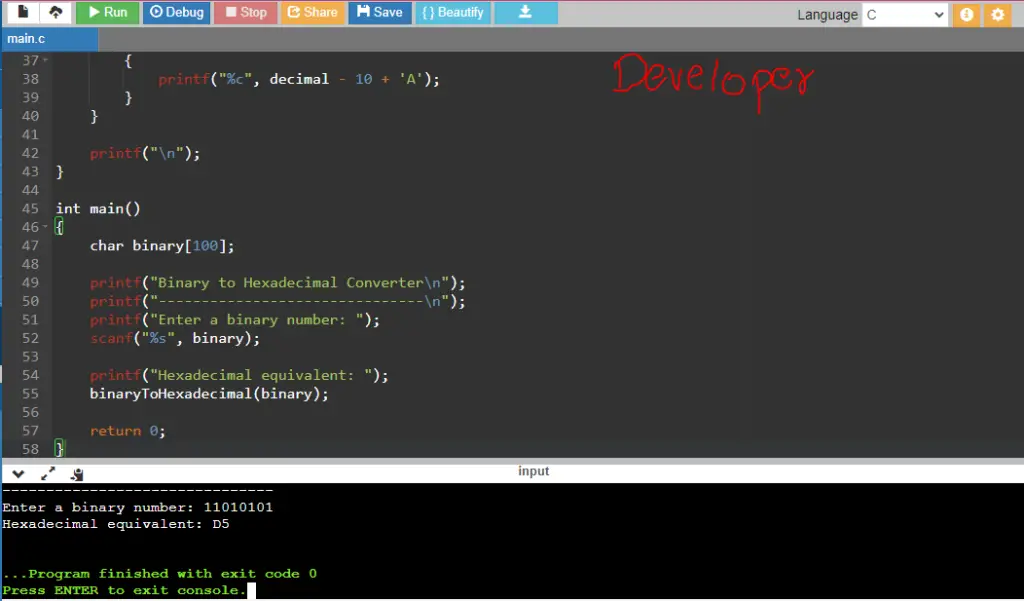

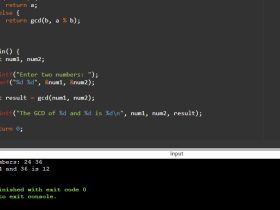
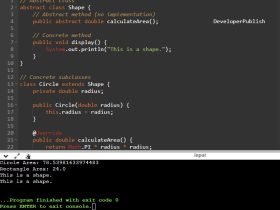
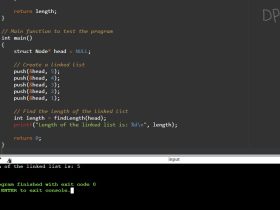
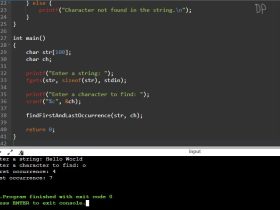
Leave a Review